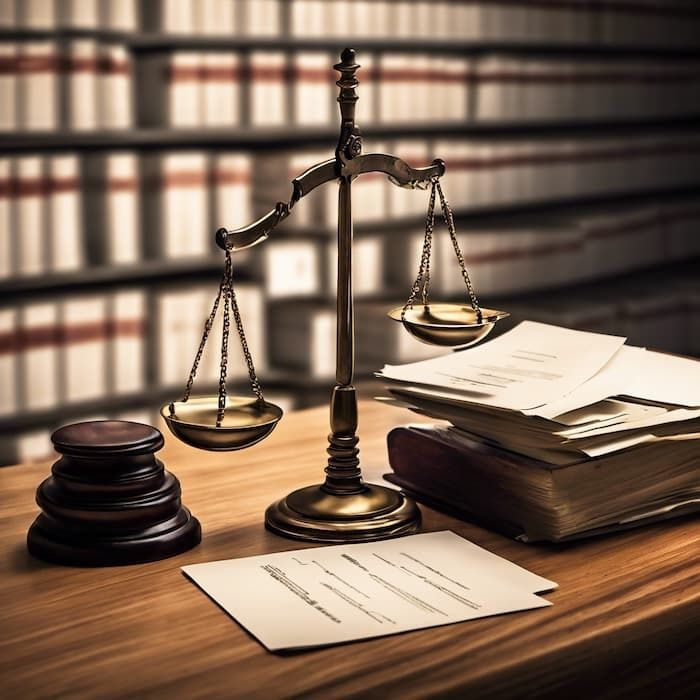How to avoid liability for late performance of a contract?
Late performance of a contract can lead to serious consequences, including fines, penalties or even legal action. However, there are ways to avoid liability for delay if it occurred for objective reasons, such as force majeure or other unforeseen circumstances. Legal analysis of documents, a legal opinion of a lawyer and legal advice will help you build a proper defence strategy and minimise possible risks.
Legal analysis of the situation before resolving the dispute
Before starting to resolve the issue of delayed contract performance, it is important to conduct a legal analysis of the situation. This will allow you to assess possible risks and build the right legal strategy to avoid liability. A lawyer will check the terms of the contract and provide a legal opinion on possible actions in your situation.
- Legal review of documents: A lawyer will check the terms of the contract for opportunities to avoid liability due to force majeure or other legal grounds.
- Legal analysis of documents: The lawyer will conduct a detailed legal analysis of the contract to determine your rights and obligations, as well as the possibilities of avoiding liability for delay.
- Legal opinion of the lawyer: After the analysis, the lawyer will provide a legal opinion with recommendations for further actions and minimisation of liability risks.
Main grounds for avoiding liability for delay
There are several grounds for avoiding liability for late performance of a contract. These may include force majeure, improper performance of obligations by the counterparty, or other circumstances beyond your control. A lawyer will help you determine whether there are grounds for avoiding liability in your situation and prepare the relevant documents for court or other dispute resolution.
- Force majeure: Circumstances that could not have been foreseen or avoided may relieve you of liability for delay in contract performance.
- Improper performance of obligations by the counterparty: If the delay was caused by the actions or inaction of the counterparty, you may avoid liability for failure to fulfil your obligations.
- Changes in legislation: If the laws have changed during the period of contract performance, making it more difficult to fulfil the contract, this may be grounds for avoiding liability.
- Absence of fault: If you can prove that the delay was not your fault, you may be exempt from liability.
The procedure for settling disputes over delay
Disputes over delay in contract performance can be settled both out of court and in court. It is important to prepare all the necessary documents and have legal support to protect your rights. A lawyer can help you draft letters of claim, negotiate with your counterparty, and prepare documents for going to court if necessary.
- Consultation with a lawyer: Before you begin to settle a dispute, it is important to get legal advice to assess your chances of success and help you develop a defence strategy.
- Preparation of documents: A lawyer will help you prepare letters of claim or other necessary documents to resolve the issue of delayed performance.
- Representation in court: If the issue cannot be resolved amicably, a lawyer will represent your interests in court to protect you from liability for delay.
Legal consequences of delay in contract performance
Late performance of a contract can have serious legal consequences, including the imposition of penalties, a claim for damages or even litigation. A lawyer will help you minimise the consequences of delay and ensure legal protection of your interests in litigation or at the stage of pre-trial settlement of a dispute.
- Penalties: Fines or penalties may be imposed for late performance of the contract in accordance with the terms of the contract.
- Damages: If the delay has caused your counterparty to suffer financial losses, they may seek compensation for these losses through the courts.
- Litigation: If the parties cannot reach an agreement on the delay, the case may be referred to court to resolve the dispute.
Representation of interests in cases of delay in contract performance
It is important to have professional legal support in the process of settling a delay dispute. A lawyer or attorney will help you collect all the necessary documents to support your position and avoid liability. The representation of a lawyer in court or at the negotiation stage is an important element in achieving a positive outcome.
- Collection of evidence: A lawyer will help you collect all the necessary documents and evidence to prove that the delay was not your fault.
- Negotiating: The lawyer will represent your interests during negotiations with the counterparty, trying to reach an amicable settlement of the dispute.
- Defence in court: If the case goes to court, the lawyer will ensure that your interests are properly protected in court and help minimise the legal consequences of the delay.
Legal advice on delay in contract performance
Legal advice on contractual delay will help you assess your chances of successfully resolving the issue and avoiding liability. A lawyer will help you understand what legal instruments can be used to protect your interests and how to minimise possible risks. A written consultation or online legal advice will provide you with clear recommendations on how to proceed.
Verification of documents: A lawyer will check the terms of the contract for provisions that allow you to avoid liability for delay.
Legal analysis: A lawyer will conduct a detailed analysis of the contract and help you assess your options for avoiding liability.
Legal opinion: The lawyer will provide a legal opinion with recommendations on further actions to avoid liability for delay.
Question and answer
Question.
What should I do if the delay in contract performance is due to force majeure?
Answer.
In the event of force majeure, you need to collect all the documents confirming the unforeseen circumstances and notify the counterparty. A lawyer will help you prepare the necessary documents and prove the existence of force majeure in court.
Delaying the execution of a contract can lead to serious legal consequences, but there are ways to avoid liability if the delay was due to force majeure or other unforeseen circumstances. A legal review of documents, legal analysis of the contract and a legal opinion from a lawyer will help minimise risks and ensure that your rights are protected. Legal support will help you avoid liability for delays and avoid negative consequences in litigation.



























